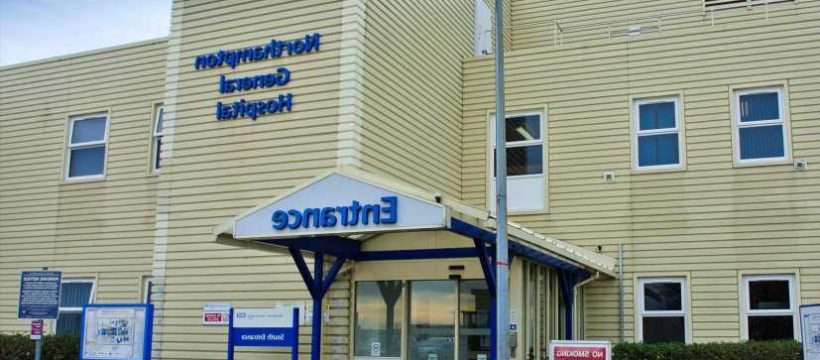A HOSPITAL in England has told patients to “avoid A&E if you can” amid pressures from Covid and the hot weather.
The London Ambulance Service has also issued an emergency alert after admitting it was struggling with a surge in demand.
Patients could be turned away from A&E in Northampton if their condition is not life-threatening, Metro reported.
Hundreds are turning up at emergency services at Northampton General Hospital (NGH) and Kettering General Hospital every day.
But bosses said a “significant amount – particularly young people – have relatively minor problems”, suggesting they should stay at home or seek medical attention elsewhere.
Kettering General Hospital’s Clinical Director for Urgent Care, Dr Adrian Ierina, said: “Both hospitals are seeing a very high number of attendances at A&E and this is creating pressure across all departments.
“The NHS locally is very busy and we please ask people to think about the best place for their care instead of using our A&E services.”
NGH Chief Operating Officer Jo Fawcus said medics “need the support of our local community so that we can concentrate on those people who need our care the most”.
“We are continuing to see hundreds attending the two A&E departments at Northampton and Kettering each day, a significant number of them with relatively minor problems,” she said.
Ms Fawcus said it came when Covid admissions are rising during the third wave.
And it was young people being seen in hospital especially.
? Read our coronavirus live blog for the latest updates
She said: “We are seeing Covid-19 infections are again rising across the county – and the numbers of people, especially younger people needing to be hospitalised with it, which is a serious concern.”
It comes after the Covid epidemic and scorching temperatures has put additional pressure on ambulances in the past few days.
The London Ambulance Service (LAS) received 2,000 calls more than a “normal” busy day on Monday.
A total of 7,592 calls were received and an additional 6,259 were put through to the NHS 111 non-emergency helpline.
LAS gold commander Natasha Wills told the Evening Standard: “We did struggle on Monday.
“From about 10am, we had over 400 calls an hour coming into our control room. Routinely we are looking at 250. We started to really struggle at 350.
“From my perspective, the incident needed to be declared. We needed to signal to everybody the pressure we were under.”
On Tuesday, 7,230 calls were made to the LAS and 4,198 to the 111 helpline.
Due to extreme demand, a “business continuity incident” was declared around 4pm, meaning there was a risk of services slipping under an acceptable level.
Worsening situation
There have been warnings the NHS is feeling the strain of the latest Covid wave.
Hospital admissions and inpatients are nowhere near levels seen in the first and second wave.
However, they show no signs of slowing- with pressures compounded by the “pingdemic” of the NHS Test and Trace app forcing staff to self isolate.
Figures show the number of hospital admissions in England of people with Covid has climbed to its highest level for nearly five months.
A total of 752 admissions were reported on July 19, NHS England figures show.
This is up 21 per cent on the previous week, and is the highest daily number since February 25, according to analysis by the PA news agency.
At the peak of the second wave, daily admissions hit a high of 4,134 on January 12.
The total number of patients in hospital in England with Covid stood at 4,063 on July 21 – up 31 per cent week-on-week and compared to 34,336 at the peak of the second wave.
Speaking at the Downing Street press conference on Monday, the Government’s chief scientific adviser Sir Patrick Vallance said the trend for hospital admissions during the third wave was likely to be “a somewhat different picture” to the second wave.
The numbers are expected to increase though not to the same extent as before.
“We do expect there to be over 1,000 people per day being hospitalised with Covid because of the increase in infections, but the rates should be lower than they have been previously because of the protective effects of vaccination,” he said.
Source: Read Full Article




